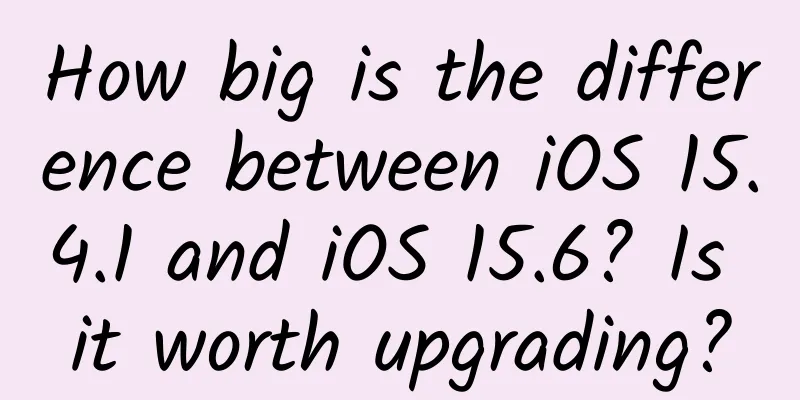Order cuts, stock price plunges, Apple adjusts strategy this winter

|
***According to reports, Apple stock has officially entered a bear market, with its share price falling more than 20% from its high on October 3. Apple's stock price fell by 3.96% by the close of trading on Monday, hitting a four-month low. These two months are also the period of the largest decline since Apple went public. In early October, Apple's market value exceeded $1 trillion, and has since evaporated by nearly 20%. It's not just Apple that is under pressure. The share prices of Amazon, Netflix, Google, and Facebook are all falling. Despite the decline, Apple's market value is still above $900 billion. Corresponding to the drop in stock prices, Apple has reportedly slashed orders for its three new iPhone models, the iPhone XR, XS and XS Max, with the XR model being the worst hit. Apple previously told suppliers that it plans to cut XR production by one-third between September this year and February next year, and last week it planned to cut XR production again. Foreign media also reported earlier this month that Apple has informed its smartphone assemblers Foxconn and Pegatron to suspend plans to add a dedicated production line for the iPhone XR launched this month. People familiar with the matter said that Foxconn initially prepared nearly 60 assembly lines for Apple's XR model, but recently only used about 45 production lines. Last week, several Apple suppliers issued profit warnings, including Lumentum Holdings, the main supplier of Face ID technology for Apple's first iPhone, and screen manufacturer Japan Display (JDI). Part of the reason for Apple's stock price decline is that key suppliers issued profit warnings, suggesting that Apple's mobile phone sales were not as expected. Apple's stock is often impacted by signals from its vast global supply chain. Last year, warnings from some manufacturing partners sparked concerns that Apple's new iPhone X might fail. But when the company reported holiday quarter results, sales figures for the device were strong, sparking a rebound in the stock. This year, the same node and the same new product have caused investors to worry. Can Apple still turn the tide by relying on the Christmas season? For Apple, these short-term fluctuations are nothing, as the general direction of the smartphone market has been predictable since the iPhone 6s growth stopped in 2016. The iPhone never recovered in terms of sales volume in the following days. The demand for the new iPhone was not as strong as expected, fewer people bought their first phone, fewer people switched from Android to iPhone, and old iPhone users waited longer to replace their phones. In early November, Apple announced in its 2018 Q4 earnings conference call that it would stop reporting iPhone, iPad, and Mac sales from the next quarter. No longer providing sales data means that Apple's hardware sales cannot return to previous levels, and it will not return to previous levels for a long time in the future. Since it is impossible to increase sales, it changed its strategy and raised the price. The entry price of Apple's new phone is as high as 6,499 yuan, which is much higher than Huawei, Oppo, Vivo, and Xiaomi phones. The new iPhone is expensive, but the manufacturing cost is also expensive. The technical content and quality have increased, and the component cost has also increased. What will Apple report in its financial statements in the future, as it no longer provides hardware sales? According to Apple, it will instead report total revenue and sales costs from now on. Providing sales data again means that Apple does not want the outside world to continue to focus on iPhone sales, and even weakens the influence of hardware sales, shifting its focus to platforms and services. In fact, smartphone manufacturers that have entered the transition period from hardware sales to services, such as Samsung, have long stopped publishing exact sales data. Avi Greengart, research director at data consulting firm GlobalData, said: "Apple has been complaining that investors are too focused on sales and not enough on Apple's long-term plans. In the long run, it will be services and platforms that determine profits. No longer disclosing sales data is undoubtedly a more direct way to solve the problem." According to Apple's vision, the average iPhone user will spend about $760 every two years on a phone, $1,200 every two years, $550 every two years on an Apple Watch, $210 on wireless headphones, and another $409 on a smart speaker. In addition, many iPhone users tend to become iPad and Mac users, so as long as consumers are enclosed in the Apple ecosystem, they are bound to Apple products and services. Apple's fourth-quarter 2018 financial report released some time ago showed that the company's service business achieved a year-on-year growth of 17%, and revenue reached a record $10 billion. This number is higher than Apple's Mac sales revenue this quarter ($7.4 billion) and more than twice the iPad's revenue this quarter ($4.1 billion). Some analysts believe that Apple's "iOS user base and expanding service portfolio" will enable the technology giant to maintain a 20% growth in the next five years. By 2023, Apple's service revenue alone will reach about $101 billion, and the service business will contribute more than 50% of Apple's total revenue growth in the next five years. There is no doubt that Apple will continue to invest more resources in the service business. In addition to the existing revenue from Apple Music, Apple App Store, Apple Cloud (iCloud), iTunes, etc., there will be a new film business and a new distribution platform for AR content creation. The traditional iPhone hardware sales model will also change. When users' consumption desire for new iPhones decreases, semi-subscription plans such as "Yearly Renewal" will attract people to replace their previous generation products with new products to ensure that the iPhone continues to be updated in the market. More people will no longer need to consider whether to buy an iPhone a year, but will buy a special service from Apple and then use a new iPhone every year. |
<<: 2019 iPhone wish list: Is there anything you want?
>>: Three Contradictions About Mini Programs
Recommend
What should I pay attention to when using someone else’s bidding account?
In the process of Baidu bidding account promotion...
Netgear Nighthawk X4S router: The confidence to sell it for 2,000 yuan is indeed reasonable
Let me give you a spoiler first: how big is the p...
Amazing Oracle Bone Script丨Talking about Cicadas in Summer
Since ancient times, Chinese people have been acc...
The top ten crisis public relations events that went viral in the first half of 2018. Let’s see who made the list!
That’s right, it’s time for the mid-year review a...
The upgrading of new energy vehicle industry presents three major changes which will promote intelligent networking
The upgrading of the new energy vehicle industry ...
China Passenger Car Association: Analysis of the national passenger car market in July 2023
1. Analysis of the national passenger car market ...
At what battery health value does an Apple phone need to have before the battery needs to be replaced?
After IOS11.3, Apple added a battery health promp...
Video UGC breakthrough: Video-based self-media
The domestic video UGC model looks more and more ...
Is Changhong redefining air conditioning?
Recently, Meiling Electric Appliances, a subsidia...
Worried about the risk of sudden death? How can people in the workplace stay healthy?
According to the 2022 Workplace Health Insights R...
Analysis of the fission gameplay of Weibo traffic diversion!
I have been in the Internet circle for 6 years an...
Collection of cases of rapid increase in followers | Inventory of Douyin celebrities in 2019
In the last few days of 2019, the cold wind hit, ...
Winter health guide for diabetics
As the weather turns cold, the cold winter is com...
LOL! This ant is so good at acting when it is slightly injured, just to let its teammates carry it home...
If someone is injured or sick, they have to go to...
30 high-quality information flow cases from 18 industries, check them out all at once!
This article shares with you 30 high-quality case...









